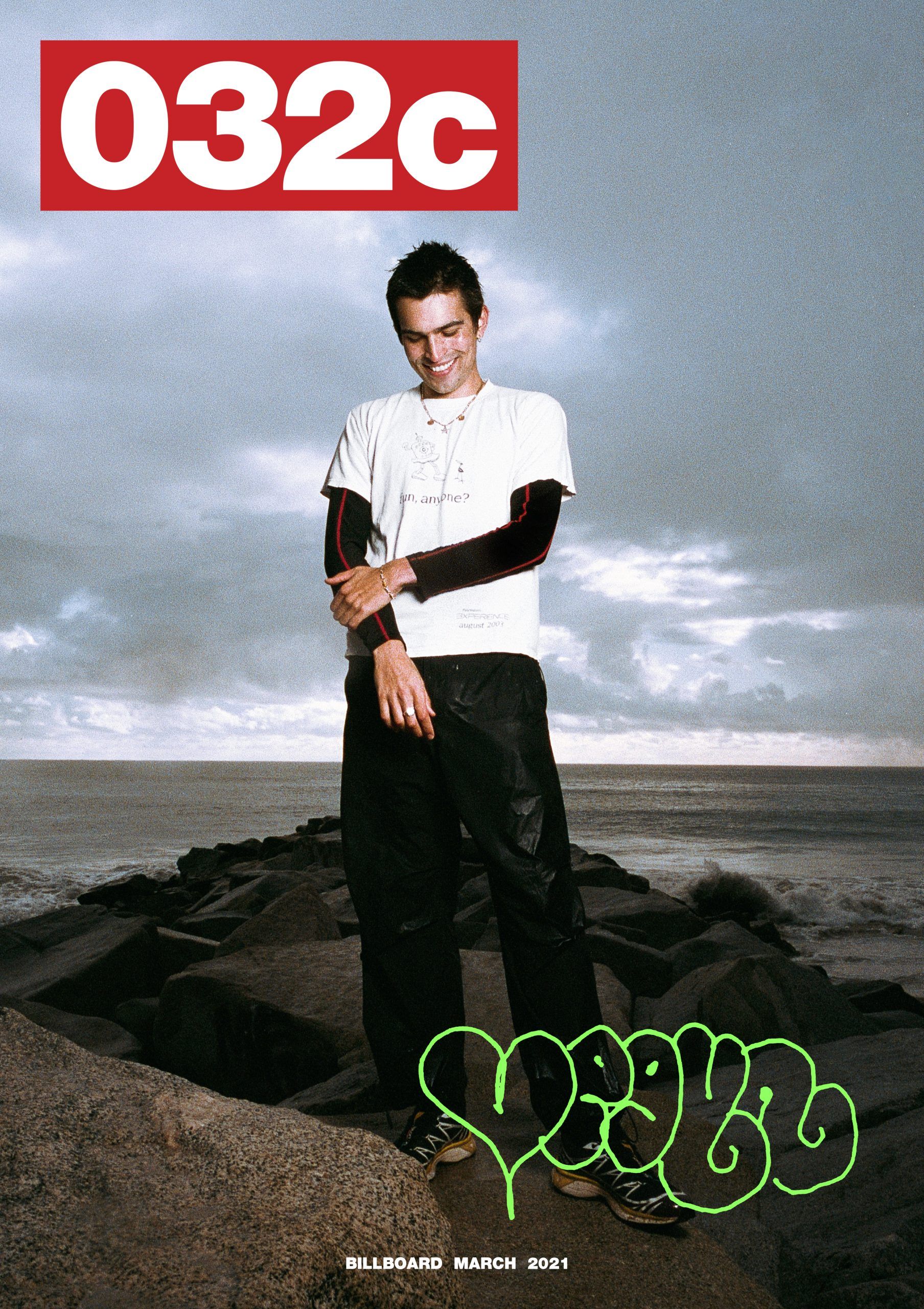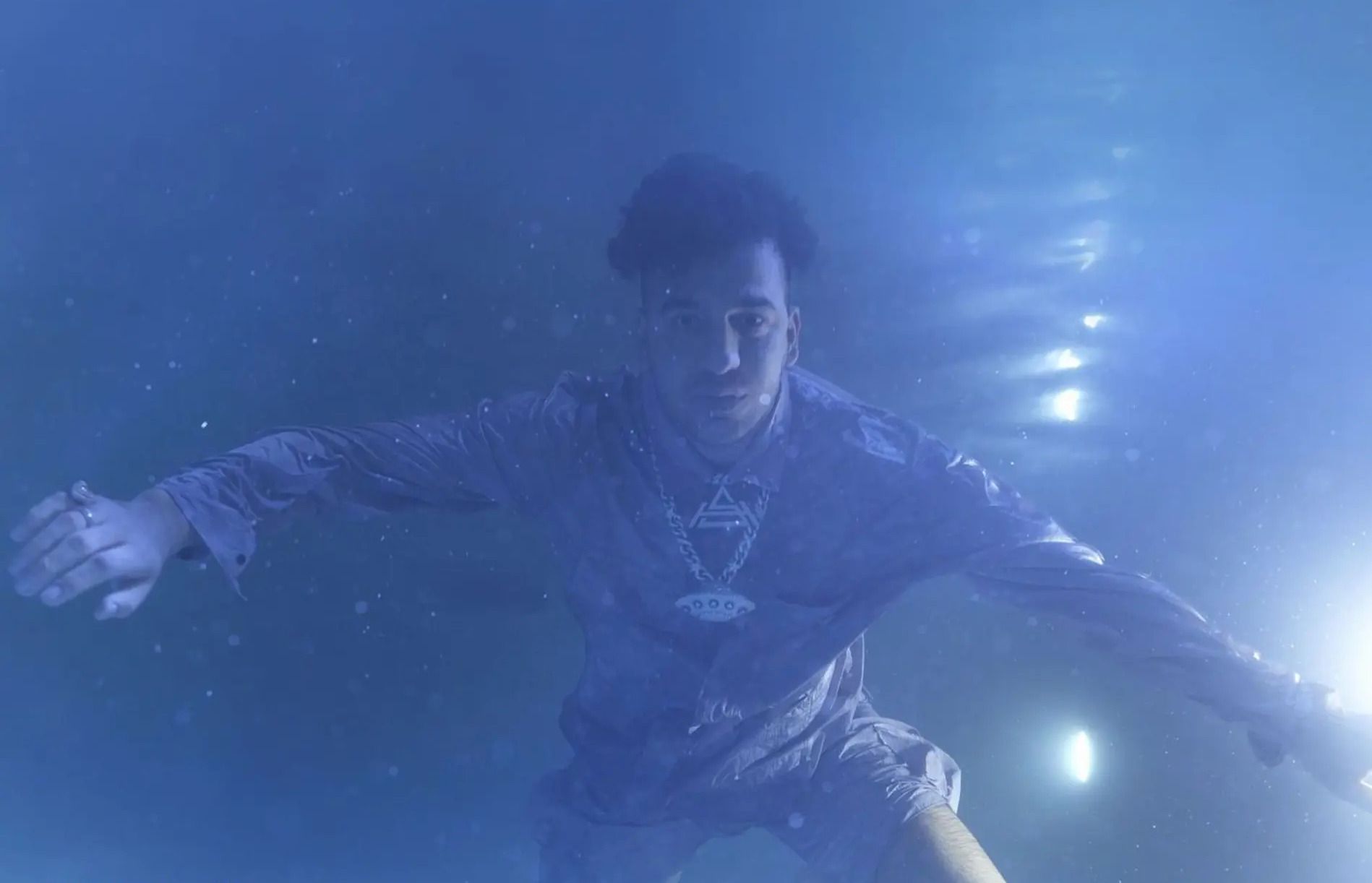LSDXOXO: Staging the Full Fantasy
|Andrew Pasquier
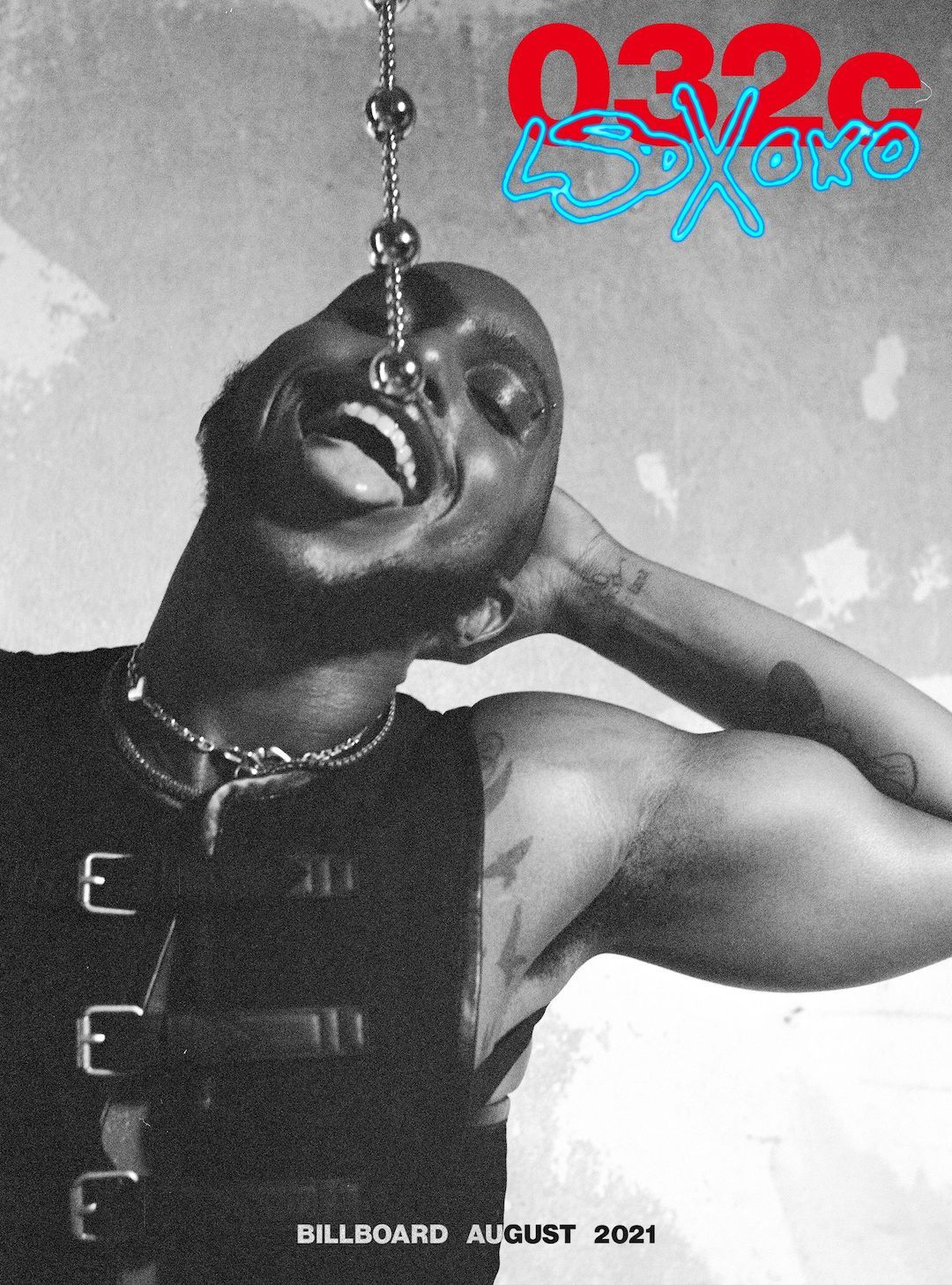
If LSDXOXO is the vaccine, I’ll take 1000 doses. One jab of the Berlin-based artist’s latest release Dedicated 2 Disrespect and you’re juiced up, feeling cunt after more than a year off the dancefloor. A creative force on the underground queer club scene, LSDXOXO makes his major-label debut with XL Recordings, and – significantly for a DJ/producer most known for clever sampling – it’s the first time we hear LSDXOXO’s voice, deadpanning salacious lines like “I’m a sick bitch and I like freak sex/If you wanna test the limits/Of my gag reflex.” Slutty hooks and mutant aesthetics capture the internet-savvy shamelessness of the cultural zeitgeist in our post-ish pandemic world.
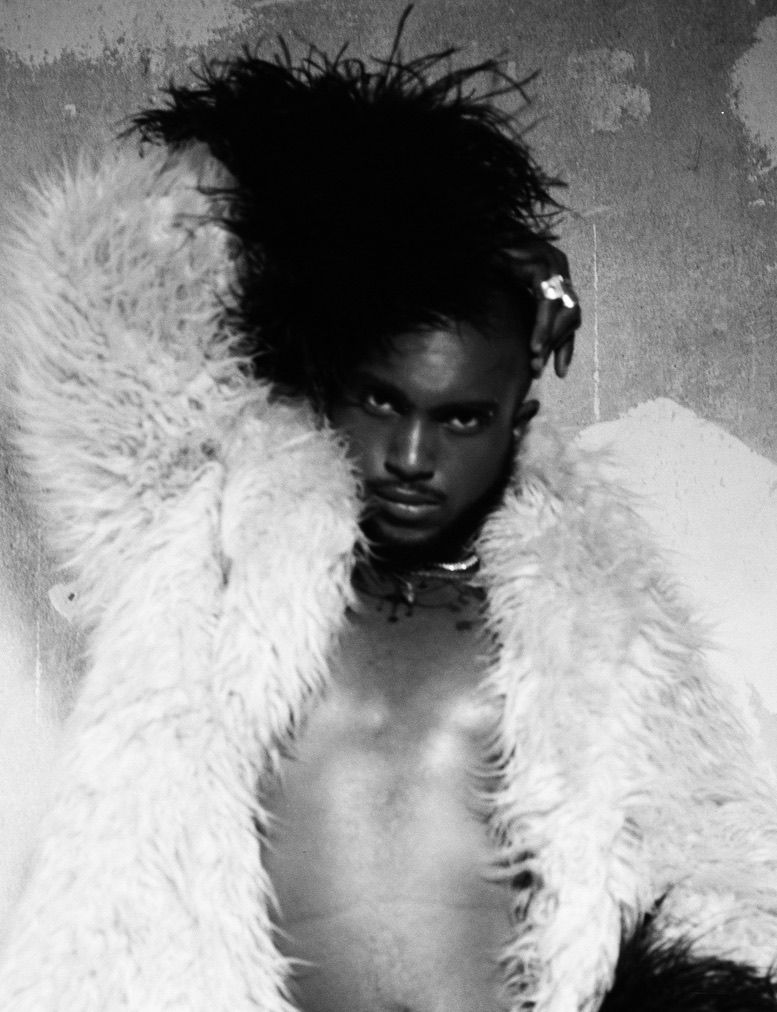
When we sat in his bedroom in Neukölln last month – amid mood lighting and the new instruments he’s learning – LSDXOXO, aka RJ, had yet to mix his new tracks live at a club. Living vicariously through friends’ Instagram stories, RJ was reflective about the big artistic moves he’s made with this EP and his upcoming album: a string of music videos, star recognition, and his debut as a songwriter and live performer. “I am stepping out from behind the decks,” he explains with a self-effacement that belies his spicy Twitter and larger-than-life stage presence. “Would people be completely confused and thrown off by me releasing music with my own vocals on it?” If the critical hype and two sold-out record pressings are any indication, the people only want more. A club hitmaker when the clubs were closed (just see the hype around the VTSS remix of “Sick Bitch” generated months before its official release), you would think RJ would stick to the formula. But, as anyone who’s followed his career knows, RJ doesn’t do formulas: he breaks them. While the rest of the world largely moved from the physical to the digital last year, LSDXOXO took his craft in the opposite direction, trading software for hardware, even learning the electric guitar. “Right now I’m living my boyband fantasy,” he teases with a coy smile. “I’m becoming a performer.”
At the first post-lockdown edition of LSDXOXO’s Floorgasm party a few weeks ago, New Berlin was on full display. As the city has evolved as an alternative youth culture refuge – especially for queer and trans folks from across Europe – its nightlife culture has changed, testing the four-on-the-floor techno formula and black sportswear aesthetic that once defined clubbing in the German capital. Having honed his signature genre-crossing, fast-mixing sound at the helm of iconic Brooklyn parties such as GHE20G0TH1K, LSDXOXO intentionally programs Floorgasm to give “Berliners a taste of what it’s like to party in New York – to have a more wonky, theatrical experience, that’s not so ‘this is techno’ or ‘this is house music.’” While initially greeted with skepticism upon his move in 2018, Berlin embraced RJ once its DJs realized he is just “as adamant about making music and serious about the craft as they were.” In the colorfully decorated Friedrichshain garden that hosted the latest Floorgasm, there was a palpable sense that a new, more diverse scene was being built. Muscle boys wore frilly tops and femme ravers rocked banjee-adjacent bandana looks, taking cues from RJ’s own eclectic style. “I treat myself like I’m a Ken doll,” he jokes to me. “I’m trade one day; I’m Zoolander the next day; I’m punk this day; I’m glam that day. It just depends on my mood. I really just dress myself the way I feel on the inside.”
LSDXOXO returned to the U.S. this month, and the Atlantic rarely felt so small. New York was ready to greet their musical memelord of techno-bop anthems. Playing at Basement — a club symbolic of Berlin’s reciprocal influence on New York’s nightlife scene — LSDXOXO, as one friend put it, “mixed, served, and conquered,” at the venue’s first indoor party since March 2020. Wearing a lime-tipped unit and mesh dress, RJ tore through unforgettable techno remixes of his own tracks, layering “Sick Bitch” on top of the wonks of “Satisfaction” — as well as tracks by alt-queer icons Azealia Banks (“Fuck Him All Night”) and Bjork (“Possibly Maybe”) — to approving cheers from the the dancefloor. Hours before the club opened, a line of Gen LSDXOXOers snaked down the block in Maspeth, Queens. They knew: it’s past time to get inoculated with LSDXOXO’s “boom boom vaccine.”
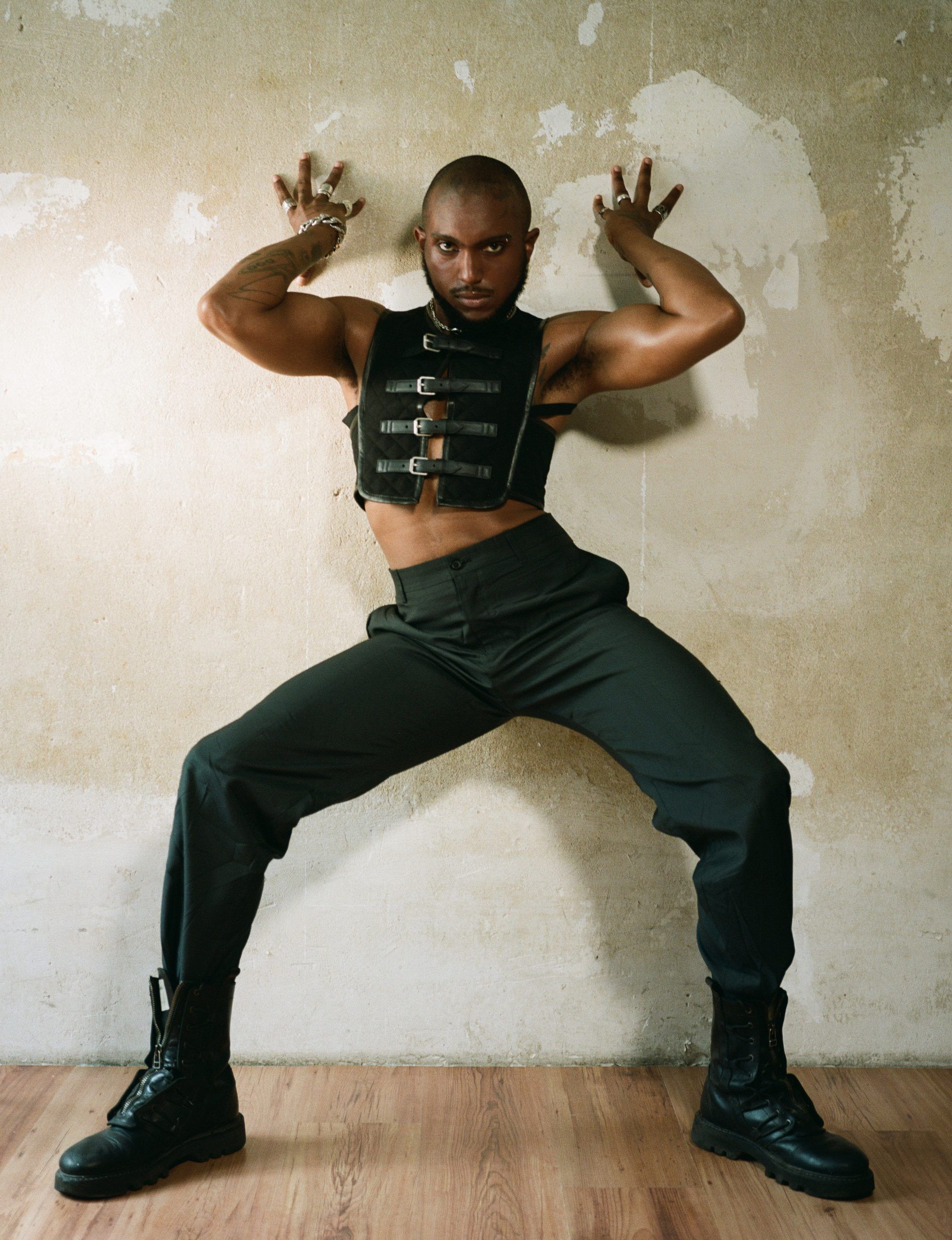
Andrew Pasquier: You emerged as a DJ and producer especially known for your clever play with samples. Dedicated 2 Disrespect, your first full length EP, is an entirely new direction.
LSDXOXO: Exactly. I was a collage artist. When my label, XL Recordings, asked me to make a project with original music, I had to start from scratch. At the time, I just really wanted to make a project that was very specific to what I associate with XL: 90s rave music.
This is also the first year that I’m entering into being a performer. I have a few performances this year that are booked as an initial moment for me to define and introduce myself to the public as an artist and performer. I am stepping out from behind the decks, which for me is super nerve-racking.
So the EP reflects where your head and ear were at more than a year ago?
I finished up the project by the end of the summer in 2019 and handed it in to XL. While we were planning the distribution and visual rollout, Covid happened. There was a year plus in between when I made the music and then when it was released.
I’ve already made a few steps past where I was when I made those tracks – in terms of songwriting, in terms of production, in terms of the instruments that I now know how to play. I’m still the same artist and I apply the same approach to making my music, but it’s a bit more fleshed out than it was when I initially made the project.
It’s a DJ’s bread-and-butter to play at clubs, but I imagine Covid was actually a necessary break from touring and all the expectations and energy that it demands.
Having that year-long break really helped because I was able to workshop a lot of new ideas with myself, instead of troubleshooting in front of an audience. Even when I learned how to DJ, I didn’t have money to buy equipment. My first gig, I had never even touched the equipment before. I was just figuring things out as I went!
If I put things out there in a not refined way, though, that’s how people are going to view me as an artist moving forward. You have to be careful with that because it’s the first thing people see. I don’t want them saying, “You did this shitty show with bad sound and you couldn’t remember your lyrics.” I want to cut that part out and bring in the polished version of what I’ve been working on for the past year.
“A lot of people – especially in techno – never want to say that they’re influenced by pop music. They’re anti-pop. For me, I feel like it’s also kind of punk to say ‘No, fuck it. I am pop.’”
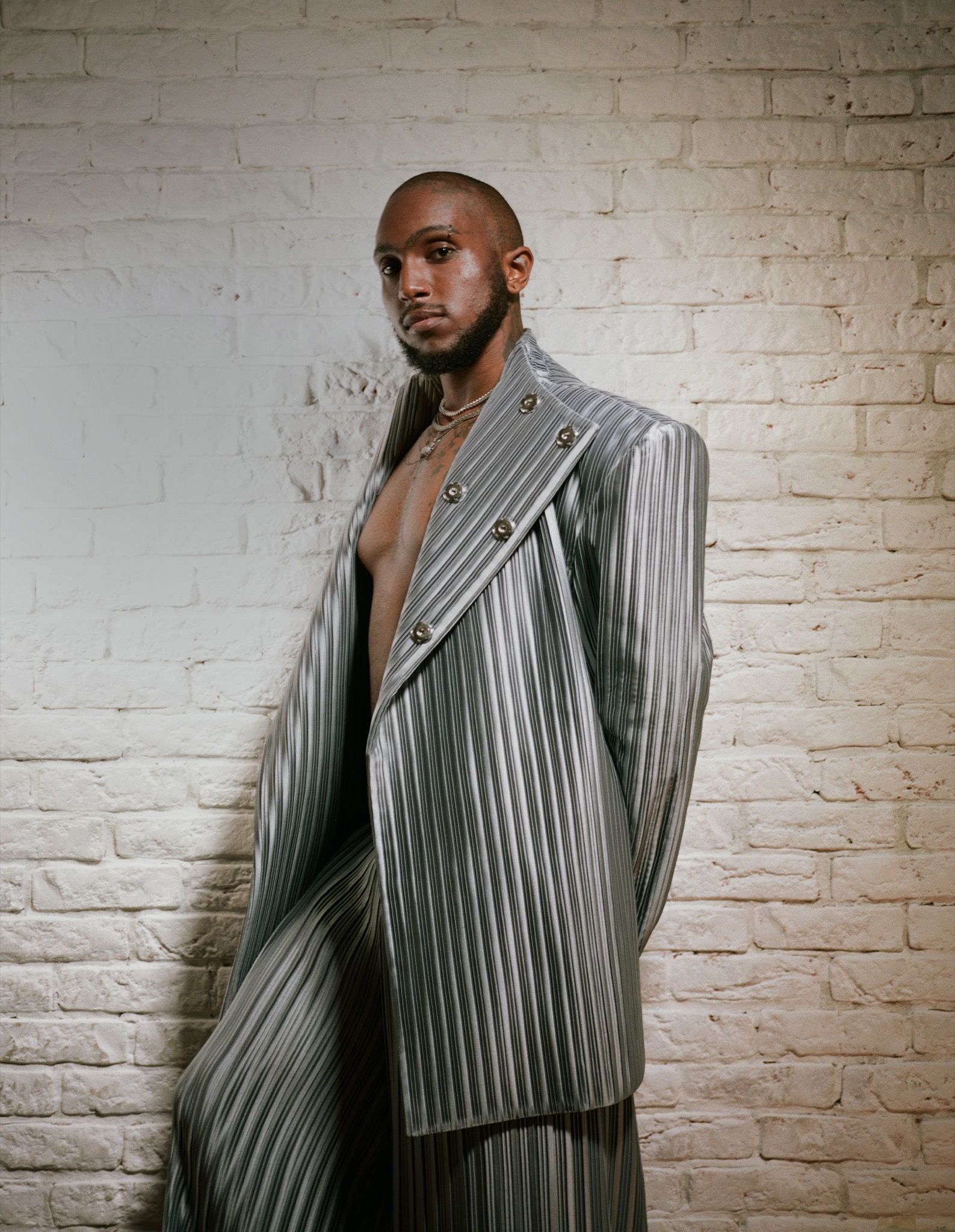
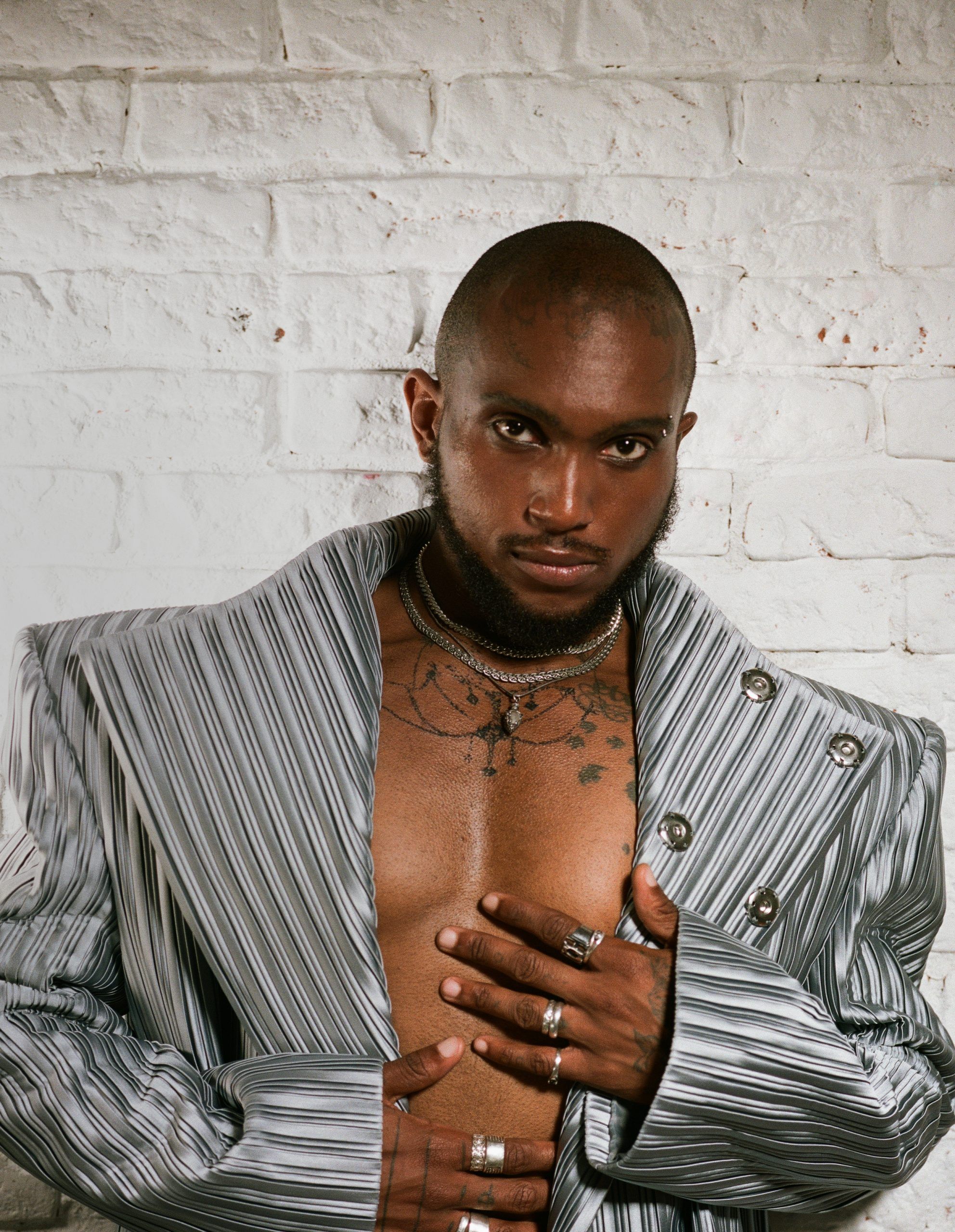
Where’s your sound evolving? You told me that you’re going in a more “punk” direction with a live band.
Right now, I’m remaking the tracks from my last release into live versions. Everything on Dedicated 2 Disrespect is quite dancey and electronic, so I’m breaking each of the tracks down into different elements that can be played live. I’m working with a band. We just started practicing a few weeks ago. There’s a drummer element and an electric guitar element. I’m also learning how to play the electric guitar myself. Eventually you’ll see me out there on the guitar, but give me some time for that! There’s two different performances that I’ve been practicing for: one is a solo performance for a club setting, and then one that’s a bigger production with a full band and some performance art elements thrown in.
Everything that I do is still anchored in pop, though. Pop as a genre is the one that I identify with the most because it’s a hodgepodge of different influences. It’s evolving, always. It involves putting different genres of music through a certain filter that makes it more digestible for mainstream audiences. It’s a fun thing to do.
Yet, dance music culture tends to celebrate the underground, not pop appeal. How do you think about the relationship – musically and culturally – between the underground and mainstream?
I think it’s really interesting to play around with that divide. A lot of people – especially in techno – never want to say that they’re influenced by pop music. They’re anti-pop. For me, I feel like it’s also kind of punk to say “No, fuck it. I am pop.” I try to apply my punk, angsty approach to making pop music and still have it feel authentic. On my upcoming projects, I’m taking influences from my teen years and reapplying them because right now I’m living my boyband fantasy: I’m becoming a performer.
“Right now I’m living my boyband fantasy: I’m becoming a performer.”
How do you think about your own evolution as an artist in relation to those different roles: being a producer versus a DJ versus a performer?
I’ve always identified as a DJ just as much as I did a producer, and do now as a performer and songwriter. But I see how much effort goes into practicing and putting on a show as a full production, versus me showing up with USBs. It’s a different world, for sure. DJs absolutely have lots of influence, but there’s definitely a bit more effort that goes into being a full-fledged artist.
"The New York approach to nightlife, to clubbing, to music-making is very theatrical and over the top. It’s a melting pot approach to making music."
We’re both from Philly, moved to New York, and now live in Berlin – the musical culture in each city is distinct. Are there any influences from growing up in Philly, or from the scene in New York that have stuck with you in Berlin?
I feel like I’m a sponge. Wherever I’m living, I draw a lot of influence from those scenes. When I was in Philly, I was taking in a lot of influence from dance music around the local tri-state area, especially Baltimore Club music that’s mainly popular around Philly and Baltimore. These types of dance music are given certain local platforms that they aren’t given in other places in the States. That’s why a lot of my music is heavy on breaks and Club beats.
When I moved to New York, I started to draw new influences by having more eclectic surroundings in terms of music and people. I developed my sound within techno and harder dance music, since New York has a lot more of a techno scene than Philadelphia. Especially when I started working with Venus X, DJing at GHE20G0TH1K, I felt more comfortable being an eclectic artist. That’s the whole M.O. of being a GHE20G0TH1K artist. It’s saying: “Fuck the genre. Let’s restructure –” or even, “Let’s completely remove the structure and apply a different approach to music, which is more freeform and explorative.”
Floorgasm feels different than most Berlin parties because of that eclecticism, too. The music is more diverse, as is the crowd. It has this spirit of “Fuck it, we’re just going to have fun.”
Exactly. The essence of Floorgasm is influenced by my music career coming up in New York. The New York approach to nightlife, to clubbing, to music-making is very theatrical and over the top. It’s a melting pot approach to making music.
Do you think this vibe and approach is now changing how people party in Berlin?
When I moved, I definitely wanted to bring Floorgasm here so that Berliners would have a taste of what it’s like to party in New York. To have that more wonky, theatrical experience, that’s not so “this is techno” or “this is house music.” I feel that going out in Berlin, these musical experiences are so separated from each other. There aren’t many events here that let you do whatever with your sound.
“In Europe, techno is an establishment with a very strong foundation. It’s a bit harder to break the shell.”
In Berlin, and around Europe, dance music – especially “capital-T” techno – is such a mainstream, white institution. In New York you have a huge diversity of sounds and parties and scenes, but like in the rest of the US, the industry is way smaller. How would you say this changes the way people interact with dance music and clubbing more broadly?
In Europe, techno is an establishment with a very strong foundation. It’s a bit harder to break the shell, to give people this new experience. They are a lot more hesitant to take it in. They react with: “Why are you going against the formula? We have this thing that we’ve built up over the last few decades. Where are you going with this?” I feel like they kind of almost view it as a disrespect to the craft. So it took a bit longer to get people into my ideas in Berlin. But once people saw that I was very serious about what I do, and saw how much of myself and effort I put into my craft, they realized “while your approach might be campy, and you might be super eclectic and all over the place, we really appreciate what you’re doing with your sound regardless.” When they saw I was as adamant about making music and being serious about the craft as they were, the Berlin scene began to respect me as an artist and as a promoter. I didn’t think it would be as smooth as it was.
Is Berlin’s impact on your music what you expected?
I knew that Berlin would influence my sound, that’s why I moved here. I really appreciate how much effort everyone puts into music here. Everyone here really wants to make sure that they’re doing the most in terms of technical skill. For me, this was something that I wasn’t too well versed in. I never really considered myself to be a technically advanced producer. I was just doing things with my own ideas, and people liked it. Moving here, I started to apply a more structured way of making music to my sound, which helped make it a bit better-rounded.
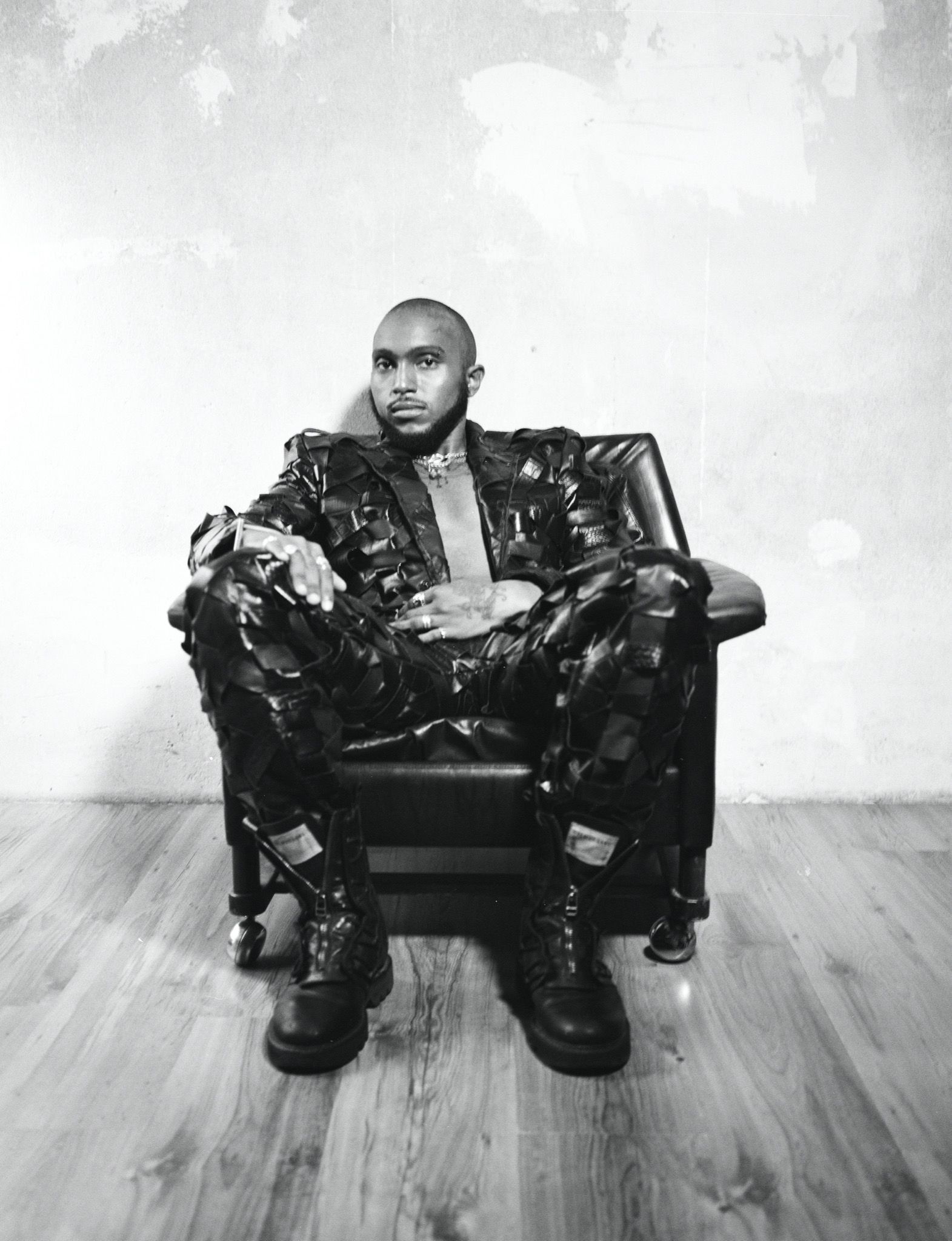
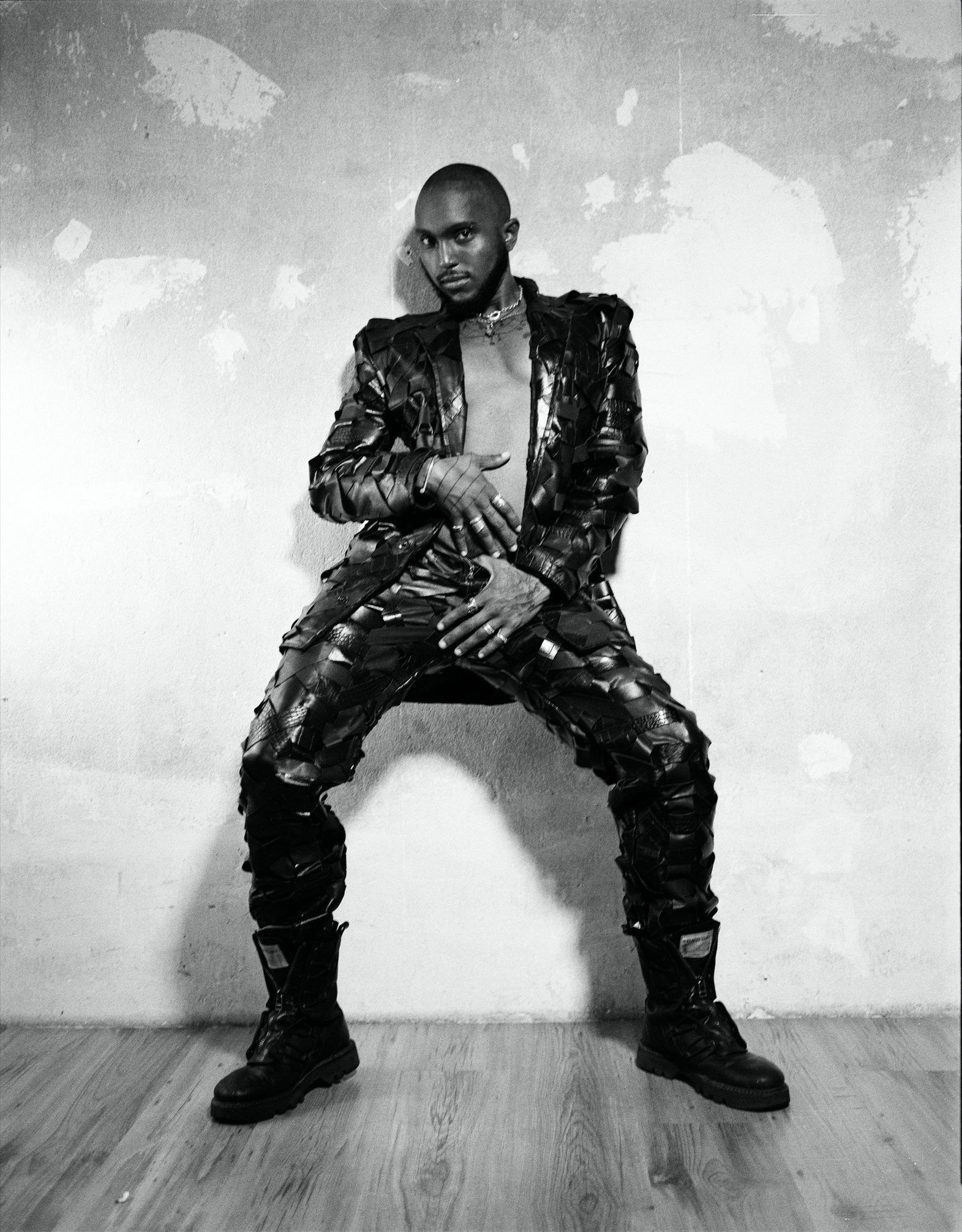
“Nobody really wants to see realism on stage. Everyone wants the fantasy.”
I feel that in pop culture today – with identity politics and social media – there’s this sense that you should be sharing the “authentic” you. Yet, at the same time, there’s an expectation that you should be constantly performing for people. As you step out from behind the DJ booth, are you thinking more about how to present different sides of yourself?
Absolutely. People want you to be authentically yourself because then they can connect with you more; but they also want for you to perform because nobody really wants to see realism on stage. Everyone wants the fantasy. For me, the fantasy is a very important element of what I do, but there’s a balance that you have to play with.
Stepping into being a vocalist and performer, I want to give enough of myself that the music resonates with people. If you’re just selling people an image that is completely detached from who you are, people will pick up on that. There’s a balance that needs to be played around with, but it’s something that I am becoming: giving myself, but also performing something.
By nature, I’m a very introverted person. But becoming a vocalist over the past couple years has helped me get more comfortable. I’m no longer worried about having my voice be heard. It’s out there, literally. It’s exciting because I feel like I’ve broken through a barrier.
No more hiding behind the decks.
For sure. It’s a place of comfort when you are an introverted person. You feel like you don’t really have to perform as much as the person who’s putting themselves on the front lines. Now I find it to be really rewarding, not just as an artist, but as a person. I want to break that barrier and put myself on the front line, to be a bit more bold and with my craft and do everything with more intention.
I’d say you were definitely already serving more than other DJs – I’ve seen you in some pretty out-there wigs over the years. Yet, you were joking at the shoot this week that maybe this 032c feature should be “less drag, more trade.” How do you think about your fashion choices and the different personas they manifest?
I’m a Gemini, so duality is the main theme of my life. Sometimes I’m feeling a certain way, and sometimes I’m feeling the opposite. It just depends on the mood I’m in. I treat myself like I’m a Ken doll: I’m trade one day; I’m Zoolander the next day; I’m punk this day; I’m glam that day. It just depends on my mood. I really just dress myself the way I feel on the inside. I think I’m able to play around so much with my artistic persona because I don’t take my image too seriously. I might have a dress on tomorrow and then like some baggy jeans and a bandanna on the next day. Who knows? You never know what you’re gonna get with me.
And a live performance is obviously a lot more than just music – it’s fashion, it’s movement.
I’ve been studying a lot of Madonna music videos. There’s a science to body movement and what you say on stage. You can’t just get onstage and perform your songs back-to-back. You have to build a connection with your audience so that it becomes a full experience and not just a live playlist.
Part of the craft of mixing as a DJ is building sonic continuity, but when you perform there are pauses between songs. The pacing is different.
Exactly. It’s done in steps, unlike DJing. This is why I haven’t touched my turntables in forever. My brain has to be in two different places while dealing with either craft. If I’m really focusing on songwriting and performing, I can’t really do much DJing. It’s a bit frustrating because that’s just not generally how I work – I like to do everything at once. But, with these particular elements of my artistry, I find that I have to divide and conquer so that I’m giving equal amounts of myself to both.
The lyrics on Dedicated 2 Disrespect are often dirty and vulgar. Do you like to use shock value as an artist?
I don’t ever really use shock value intentionally. It’s just how I am as a person. Most of the shit that I say is shocking [laughs], so it just happens. I grew up very religiously, coming from a Caribbean-Hispanic household, as well as an African-American one. Being gay was not the coolest thing. I try to use my music as my way of building my former self up – applying pride where before there was shame about my identity. That’s why a lot of the stuff that I do and say is quite shocking. I’m trying to shock my old self, like “Bitch, you’re fab! Get out of it. You don’t need to tone yourself down.”
What’s your mom think about you singing “the devil fuck me good”?
It’s funny. I didn’t even send her that project, because it was so vulgar. I tell her “Uhh I release music. Don’t listen to it.” But once I released “The Devil,” she sent me the song saying “Oh my God, I love this.” I was so surprised like, “Why is this the song you like so much?” I think it’s because she does things the same way that I do – most of the things that she does and says are shocking. She appreciates the shock value.
“I’m trying to shock my old self, like ‘Bitch, you’re fab! Get out of it. You don’t need to tone yourself down.’”
Do you think you’ll try to bring in some of the fun sampling and internet references that defined a lot of your earlier releases into your new songwriting?
This is the thing that I’m experimenting with right now because being an artist who releases into the mainstream, you can’t really do so much sampling.
There are laws.
The laws are holding me back! Not exactly – but it’s a challenge. I’m working on some new stuff that I can release in a not-so-official way so that I can still play with sampling, like my fans are familiar with. This is an essential part of my style – taking these different pieces of music and interpolating them into my own sound. I’m just trying to find the right ways to release the music, whether in video form or just on SoundCloud like I was doing in 2010.
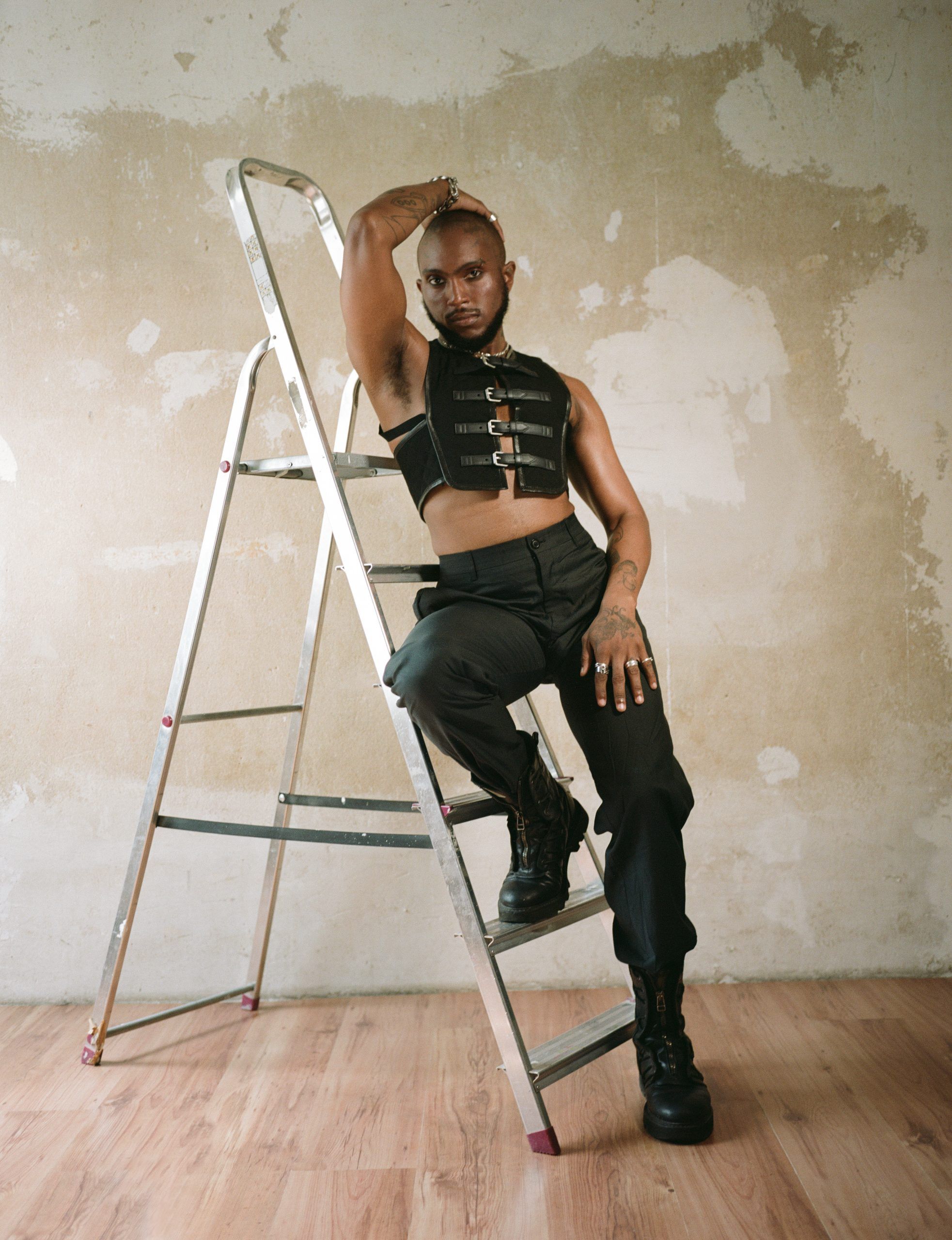
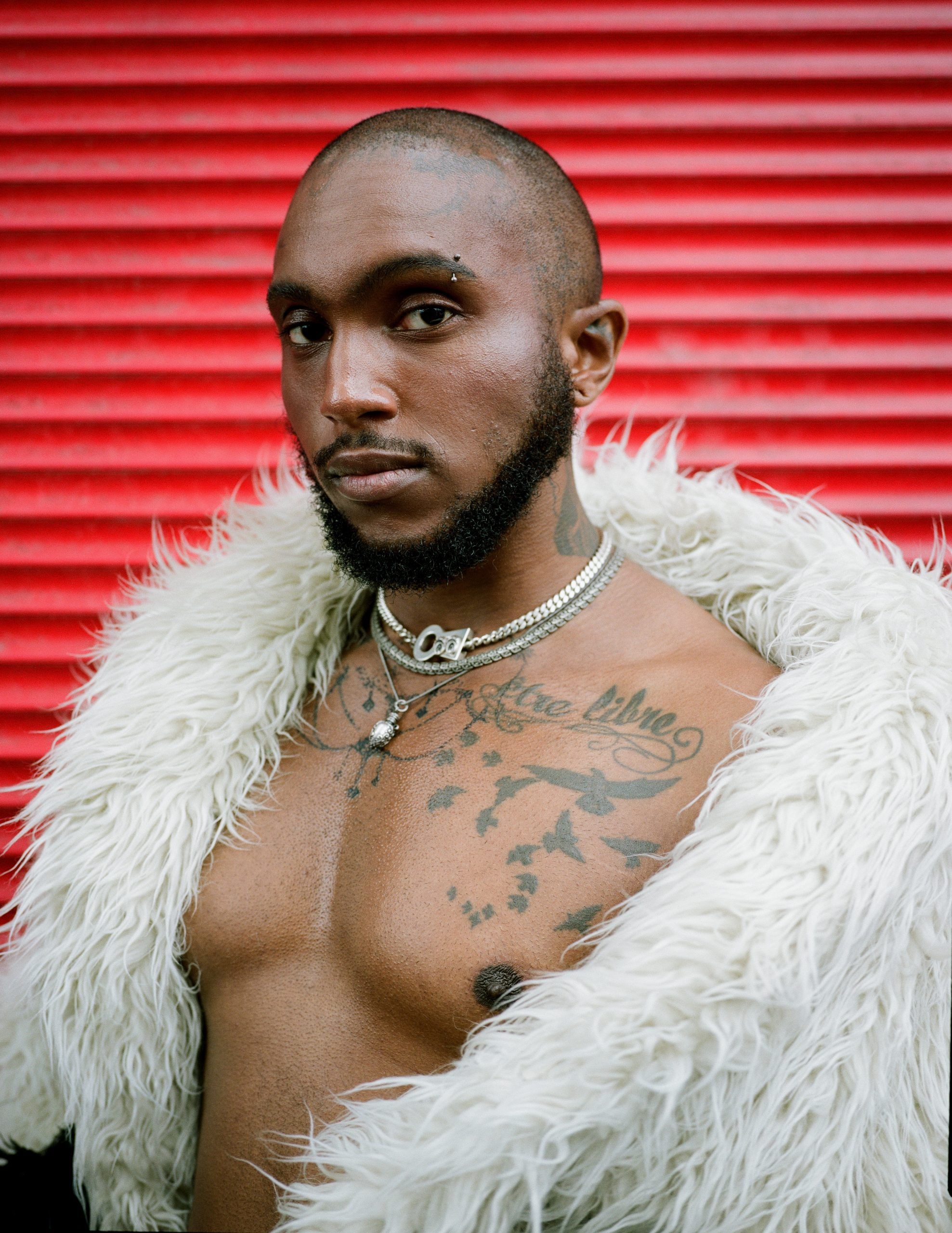
You’ve been putting out a bunch of visual content for the latest release – including the lyric video for X debuting on 032c and the super hot video for “The Devil” starring many of our friends.
I was a visual artist first. I knew that I would always make music, but I didn’t know that it might be my career path. I always thought that I was going to be a painter or work with 3D graphic design. This was what I went to university for my first two years before I decided to swap out and study business management. The visual elements of my music have always been there.
This is one of the main reasons I wanted to sign with a label: to have the opportunity to apply the visual parts of music-making to my sound since I never really had the resources to do so. It’s so exciting because I’m able to build a team of people who fully understand who I am as an artist, and what I want to deliver to my fans. It’s really heartwarming as an artist to see other people around you as dedicated to getting your vision across as you are. I used to feel like I was a one person show.
You also have a legion of fangirls.
It was really fun to have the “Sick Bitch” buzz before it was even released thanks to VTSS. That was also people’s introduction to my voice. Having everyone’s reactions be super positive overall made me feel a lot more comfortable with delivering the rest of the music. I was so stressed out about the first drop. Would people be completely confused and thrown off by me releasing music with my own vocals on it?
What’s the best feedback you’ve gotten from a fan?
Iggy Pop mentioned me on his radio station. I’m like “How is this happening?” It’s really nice to have my music be heard by people who hadn’t heard it before – to build a new fanbase.
The new tracks are already hot in clubs this summer.
It’s funny because people have been sending me videos left and right on Instagram of my last EP being played out in the club, but I still have yet to hear it on a proper sound system because Berlin has been mostly locked down for the past six months. It’ll be nice to finally be able to play these songs and see people’s reactions “IRL.” I’m just living off the stories right now. I’m excited to get out there.
A lot of people who used to come to my shows before would chastise me, “Why aren’t you playing your own music?” I hated playing my own music, because when I’m a DJ, I’m not focusing on my thing. Now I’m keen to start performing because people won’t have that complaint. You’re getting the full LSDXOXO show. My artistic identity will be fully delivered to the masses now, and I’m excited about that.
Credits
- Text: Andrew Pasquier
- Photography: Octavia Bürgel
- Fashion: Billy Lobos
- Fashion Assistant: Saint Toll Woods
- Makeup: Vitor Carvalho
- Cover Design: Milena Zuccarelli

